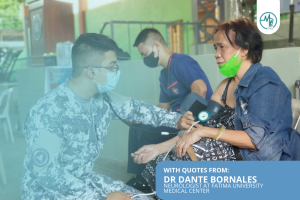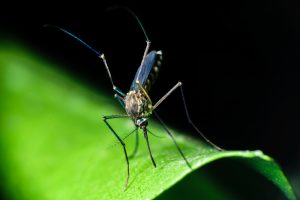The largest, longest study on COVID-19 patients who have recovered, showed that 3 out of 4, had persisting symptoms of COVID-19 at the 6-month mark. Out of the 1,733 chinese patients studied, women also made up a bigger proportion of those reporting symptoms.
What are the persisting symptoms after recovery?
The most common symptoms reported were: fatigue, muscle weakness and sleep difficulties. One in 4 patients reported having anxiety and depression. And a decline in kidney function was observed in 1 in 3 patients. Even in patients who had no documented kidney injury during the acute phase of the infection, 1 in 10 had decreased kidney function after 6 months.
Those who were severely ill during the acute phase, had residual effects that affected the function of their lungs and exercise capacity. There was even a 28 year-old woman who needed to receive a double lung transplant, but lived to tell the tale.
Not surprisingly, these findings reflect that found by studies conducted in Hong Kong after the Severe Acute Respiratory Syndrome (SARS) outbreak in 2003. One study done over 2 years showed that more than 1 in 2 survivors had impaired respiratory function. This is aside to a remarkably lower exercise capacity and health status. Also, 30% of those who recovered never returned to work.
Another study showed that 40% of survivors still reported chronic fatigue symptoms up to 3.5 years after infection. There was even another study that showed even after 12 years, the body’s metabolism of fats were altered due to the overt use of steroids.
Other possible long-term health problems include:
- Damage to heart muscle and heart failure
- Increased risk of blood clotting which results life-threatening complications
- Alterations in metabolism e.g. difficulty controlling blood sugar
- Post-traumatic stress disorder
- Loss of sense of smell (anosmia)
Is there any explanation for these persisting symptoms?
With the novelty of this disease, much is still unknown about COVID-19 and its long term effects. There have been many postulations, but no sure answers.
Some point to the virus’ receptor sites being present on kidney and heart cells, hence, taken up by, and infecting these major organs. Others point to severe inflammation that leads to residual effects on the whole body.
There have also been relationships drawn with post-viral fatigue syndrome, or chronic fatigue syndrome. However, there are no established causes for this condition as well.
How do we deal with these persisting symptoms?
Dealing with these symptoms requires a holistic approach.
- Symptomatic treatment
Use topical painkillers, or panadol for muscle aches and fevers where appropriate under medical advice. For patients with more serious issues, specialist follow-ups and professional medical aid may be required. - Pay greater attention to general health
E.g. Having a healthy diet, getting sufficient sleep, quitting smoking, reducing alcohol and caffeine intake - Optimise control of long term conditions e.g. diabetes, heart disease
Ensure adherence to medications and a healthy lifestyle - Self-pacing and gradual increase in exercise if tolerated
Set achievable targets - Show empathy and listen
Not all symptoms are physical. In fact, there are many other psychological effects that require more focus on someone’s route to recovery. They may stem from isolation, job losses, financial stresses, stigmatisation and bereavement.
The road to recovery
Unfortunately, answers will only come with time. And it is imperative that we do not downplay the seriousness COVID-19, and its persisting symptoms despite the advancement of vaccines. Sure, the numbers of active infected cases are dropping. But do we truly know how those who have recovered, are dealing with the possible repercussions of the infection?
For the survivors, we must continue to pay special attention to the warning signs and seek medical attention where necessary. They include: worsening breathlessness, unexpected chest pain, new confusion, or any sudden onset weakness.













